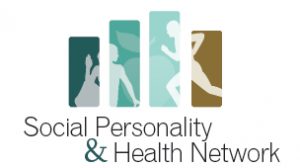Check out our new paper, led by grad student Leslie Roos, on the effects of acute stress on inhibitory control performance! The abstract is below:
Identifying environmental influences on inhibitory control (IC) may help promote positive behavioral and social adjustment. Although chronic stress is known to predict lower IC, the immediate effects of acute stress are unknown. The parasympathetic nervous system (PNS) may be a mechanism of the stress-IC link, given its psychophysiological regulatory role and connections to prefrontal brain regions critical to IC. We used a focused assessment of IC (the stop-signal task) to test whether an acute social stressor (the Trier Social Stress Test) affected participants’ pre- to post-IC performance (n = 58), compared to a control manipulation (n = 31). High frequency heart-rate variability was used as an index of PNS activity in response to the manipulation. Results indicated that stress impaired IC performance, blocking the practice effects observed in control participants. We also investigated the associations between PNS activity and IC; higher resting PNS activity predicted better pre-manipulation IC, and greater PNS stressor reactivity protected against the negative effects of stress on IC. Together, these results are the first to document the immediate effects of acute stress on IC and a phenotypic marker (PNS reactivity to stressors) of susceptibility to stress-induced IC impairment. This study suggests a new way to identify situations in which individuals are likely to exhibit IC vulnerability and related consequences such as impulsivity and risk taking behavior. Targeting PNS regulation may represent a novel target for IC-focused interventions.
Roos, L.E., Knight, E.L., Beauchamp, K.G., Berkman, E.T., Faraday, K., Hyslop, K., and Fisher, P.A. (in press). Acute stress impairs inhibitory control based on individual differences in parasympathetic nervous system activity. Biological Psychology. [pdf]

 We have some great news!
We have some great news!